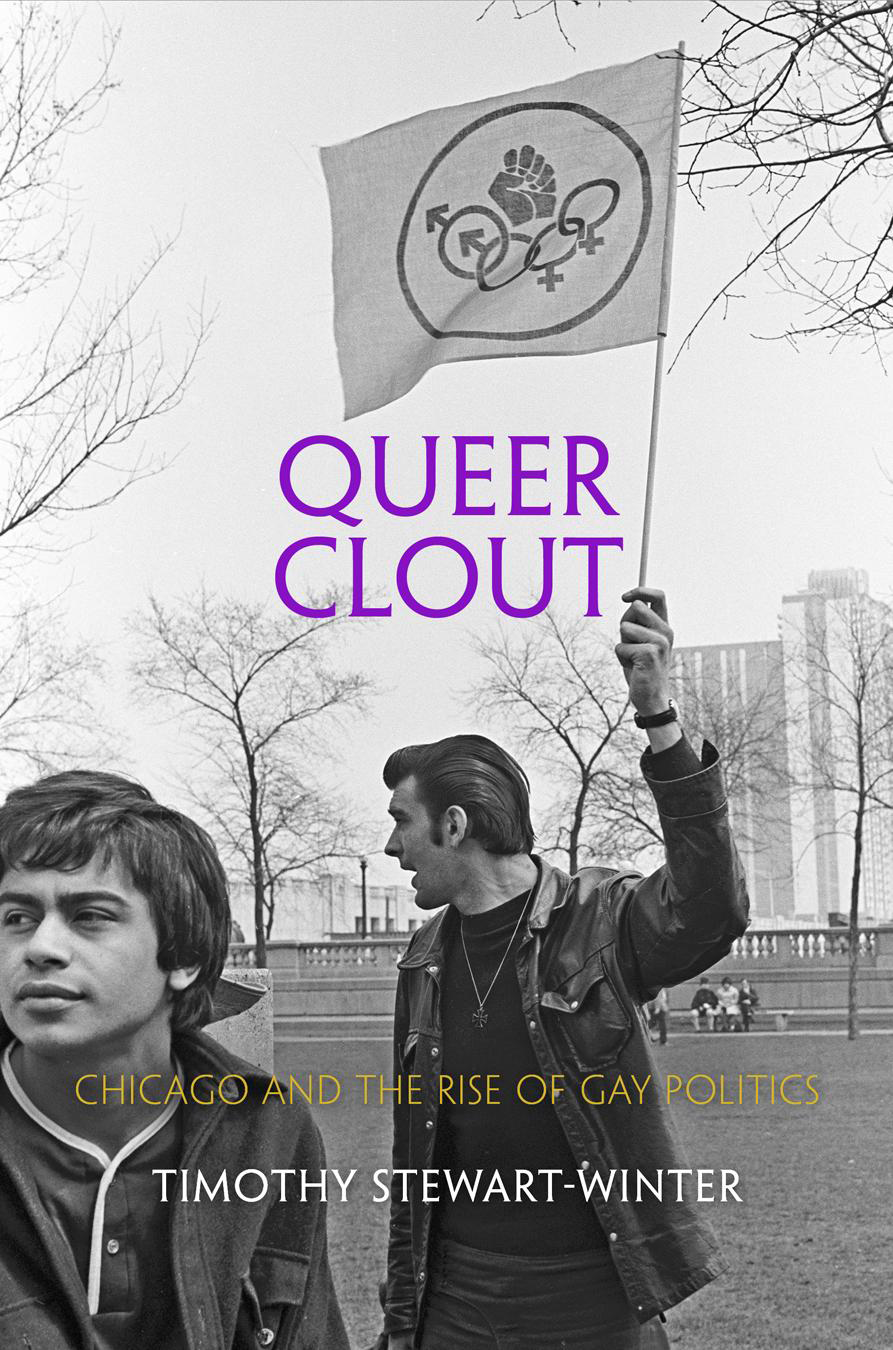In 2013, John Roberts, Chief Justice of the Supreme Court, argued that gays and lesbians were too “politically powerful” to deserve the protection of the court. To Timothy Stewart-Winter, an assistant professor of history at Rutgers, this very dismissal shows how far the nation’s queer politics have come in the past half-century. The incident opens his new book from the University of Pennsylvania Press, Queer Clout: Chicago and the Rise of Gay Politics, and he also brought it up at a talk at the University of Chicago campus on February 23. Both the book and the talk traced the rarely discussed coalition of blacks and gays fighting police harassment in Chicago and the circumstances that led to the unraveling of the coalition toward the end of the twentieth century.
One pressing question emerged early in the book and the talk: why did Stewart-Winter choose Chicago as his study’s focal point? Despite the prominence of the Stonewall narrative (New York) and Harvey Milk (San Francisco) as symbols of the beginnings of modern gay political power, Chicago is in some sense more representative of the country at large. Its importance in the Midwest puts it in dialogue with “dozens of regional magnets for gay migration,” according to Stewart-Winter. And the extent to which gays in Chicago gained political power through political circumstances unique to Chicago speaks to the importance of local political happenstance (instead of grand national events like Stonewall) for gays across the country.
Also, Stewart-Winter’s doctorate came from the UofC. His thesis treated the same set of topics that Queer Clout investigates. In a room stacked with people who knew him in the years he called Chicago home—and a number of people who were in fact interviewed in Queer Clout—he demonstrated his long-term engagement with and passion for the topic. Gay people in Chicago are still understood to live primarily in the 44th Ward, centered in Boystown. For a resident of Chicago in the twenty-first century, this might be a point of minor wonderment, but for Stewart-Winter it’s a pressing fascination, and his rich academic work sketches a Chicago that will be both familiar and foreign to people who have only known it in the new century: a city as geographically divided as the one we know, but allied along different lines.
While the title suggests a focus only on gay activism, the concern at the heart of the book is the unstable relationship between sexuality and race as political circumstances shifted the acceptability of being black or being gay or being black and gay in Chicago. Queer Clout describes how geographic racial segregation and entrenched racism came to disrupt the political possibility of a more just city put forth by the coalition between blacks and gays that emerged in the sixties and lasted until the AIDS crisis.
While Harold Washington’s candidacy sustained the coalition, AIDS “forced gay activists to confront questions of economic inequality—resource distribution, welfare provision, and health care,” which, coupled with its stigma and the complications around self-disclosure, tore apart the coalition. Stewart-Winter explains, “[w]hen Harold Washington’s thirty-seven-year-old chief of staff died in May 1985 after a brief hospitalization, for example, it was reported that he died ‘of complications resulting from pneumonia.’” The isolation of having a disease so stigmatized complicated the sense of community curated under Washington. It also complicated a coalition combining North Side whites and South Side blacks because in the late eighties, seventy percent of AIDS patients at Cook County were people of color.
His story is most compelling when it narrows in on details and characters to press home either injustices or unexpected victories in a national struggle whose horrors are often forgotten in light of recent successes. In dredging up the Schuessler-Peterson murders, an unsolved case in which three boys were brutally killed and the public came to associate their murders with sexual deviancy, Stewart-Winter juxtaposes Mayor Richard J. Daley’s response—a $10,000 reward to anyone who helped solve it, along with his proposal to grant “some program of aid” to the boys’ single mother—to his response to the death of Emmett Till, the Chicagoan lynched in Mississippi two months earlier. After Till’s murder, Daley offered no reward, and no support was suggested for his grieving single mother.
For young queers, Stewart-Winter’s book is more than a broad education in queer political history: it serves as a primer to a number of nationally and locally important characters semi-obscured by the passage of time. One striking example is Anita Bryant, Florida orange juice spokeswoman and singer, whose anti-gay politics sparked a national orange juice boycott conducted mostly by gay bars (they served screwdrivers that replaced orange juice with apple juice called the “Anita Bryant”). When her name came up during the talk, the room seemed to divide along generational lines: older participants laughed, recalling the spectacle of the boycott, and younger audience members seemed unfamiliar with her legacy.
Despite the generational divide, Stewart-Winter thinks that Queer Clout is a story with profound resonance for contemporary politics: the tale of a “left-liberal coalition in the face of a conservative resurgence.” For a city in a turbulent time, grappling with recent events such as the contentious reelection of Rahm Emanuel and the outrage surrounding the killing of Laquan McDonald, the lessons of Queer Clout speak to the power of minority groups acting in a coalition and how successful activism wages war on both legal statutes and cultural perceptions.

